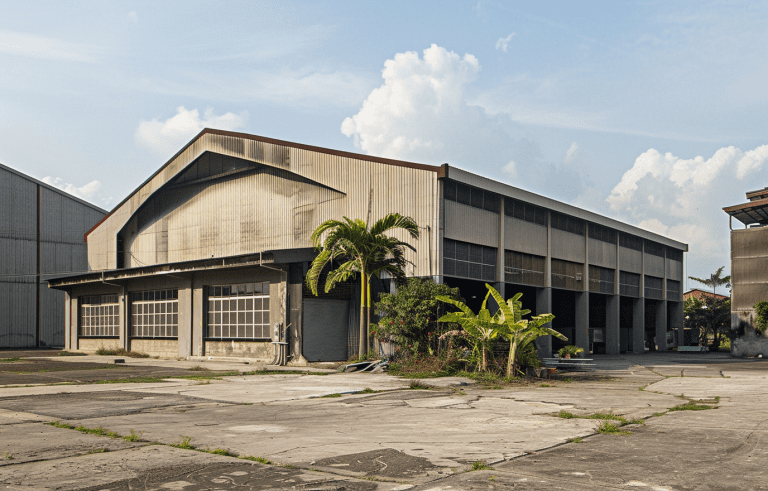
Starting an industrial construction business as a foreign-owned company in Bali, Indonesia, can be an exciting venture.
Whether you’re planning to build, renovate, or maintain industrial buildings such as factories, workshops, or nuclear material processing plants, understanding the intricacies of KBLI Code 41013 is crucial.
This code encompasses businesses engaged in the construction, maintenance, demolition, or rebuilding of structures used for industrial purposes.
Included are activities related to the alteration and renovation of industrial buildings. With Bali as your backdrop, starting a foreign-owned construction business can tap into a unique market geared towards industrial development.
This guide will walk you through the scope and descriptions necessary to navigate the local regulations and opportunities for your building venture in Indonesia.
Overview
This group covers businesses involved in the construction, maintenance, demolition, or rebuilding of industrial buildings such as manufacturing plants, industrial workshops, and facilities for nuclear material processing.
This includes activities related to the alteration and renovation of these industrial buildings.
Legal Basis
The legal framework for industrial construction under KBLI Code 41013 is governed by the Indonesian Ministry of Public Works and Housing Regulation Number 6 of 2021.
Type of License
Licensing for foreign direct investment (PMA) in this sector follows the BKPM Regulation No. 4 of 2021, Article 12.
Exemptions from the minimum investment requirements apply, notably for construction services business activities, which must exceed IDR 10 billion, excluding land and buildings per business activity at a project location.
Coverage of Service
The coverage includes construction, maintenance, and rebuilding services for industrial buildings such as factories and workshops, including significant changes and renovations.
Subclassification Codes: BG003 and GT003, which focus on construction and design-build construction services.
Business Scale, Land Area, and Risk Level
This sector is categorized as a large-scale business. The land area is not specifically regulated, but the risk level is considered medium to high.
Business licensing is standard and includes a certificate with a validity period of 15 days.
Authorities Granting Licenses
Licenses for the activities covered under KBLI Code 41013 are granted by the Minister or Head of Agency, allowing foreign (non-ASEAN) investors up to 67% ownership, and ASEAN investors up to 70%.
Requirements and Obligations for Business Licensing
Requirements include establishing the capability of the construction services business entity.
Obligations entail recording the company’s experience, adhering to safety, quality, health, sustainability standards, and complying with labor protection guidelines and environmental management standards set by legislation.
Frequently Asked Questions
-
Can foreign companies fully own a business under KBLI Code 41013 in Indonesia?
Foreign companies can own up to 67% of the business if they are non-ASEAN investors and up to 70% if they are ASEAN investors, as regulated under Indonesian laws.
-
How do changes and renovations of industrial buildings fit into the scope of KBLI Code 41013?
Alongside construction and maintenance, KBLI Code 41013 includes significant modifications and renovation activities for existing industrial structures to enhance functionality or meet new operational requirements.
-
What support does the Indonesian government provide to businesses under KBLI Code 41013?
The government offers various incentives such as tax reliefs, assistance in obtaining necessary licenses, and facilitation services through BKPM (Investment Coordinating Board) for ease of business setup and operations.
-
How does technology impact businesses operating under KBLI Code 41013?
Technology plays a critical role by improving construction efficiency, ensuring precision in projects, and facilitating better project management and communication among stakeholders.
-
How does the construction process vary for different types of industrial facilities?
The construction process may vary depending on the specific industrial sector, such as manufacturing, food processing, pharmaceutical, or petrochemical facilities, due to unique requirements for specialized equipment, clean rooms, hazardous material handling, or specific regulatory compliance.
Contact Us for Foreign-Owned Industrial Construction







